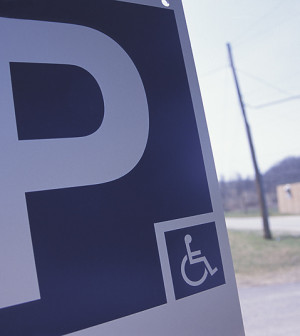- Could Artificial Sweeteners Be Aging the Brain Faster?
- Techniques for Soothing Your Nervous System
- Does the Water in Your House Smell Funny? Here’s Why
- Can a Daily Dose of Apple Cider Vinegar Actually Aid Weight Loss?
- 6 Health Beverages That Can Actually Spike Your Blood Sugar
- Treatment Options for Social Anxiety Disorder
- Understanding the Connection Between Anxiety and Depression
- How Daily Prunes Can Influence Cholesterol and Inflammation
- When to Take B12 for Better Absorption and Energy
- Epsom Salts: Health Benefits and Uses
Older Mexican-Americans Often Disabled, Study Says


Mexican-American seniors have high rates of physical disabilities, a new study says.
Researchers analyzed data from Mexican-Americans older than 65 who were followed for 18 years. They concluded that, on average, this group of people spends more than half of their remaining years with serious physical disabilities that limit their ability to do everyday tasks.
The risk of physical disabilities was higher among women born in Mexico and among those with less education and money, the study found.
The findings show the growing need for community assistance and long-term care, according to the study published recently in the Journals of Gerontology, Series B: Psychological and Social Sciences.
“The fact that Mexican Americans have an average life expectancy of 81.4 years indicates significant progress against the chronic diseases of aging, although longer life is not an unmixed blessing,” study author Jacqueline Angel, of the University of Texas at Austin, said in a journal news release.
“Unfortunately we have not compressed morbidity as much as we would have liked and many older Mexican Americans need extensive care, either from their families or others. Such a burden has serious implications for Mexican-American families and for long-term care policy,” she added.
These findings indicate that poverty and lifelong disadvantages seriously undermine the health of many older Mexican Americans, Angel said.
Angel noted that the family tends to step in to provide care to even seriously impaired older parents. Still, “we must develop policies and programs that complement the family in their ability to provide care to older infirm parents in order to improve the quality of life of both the older parents and their caregivers,” she concluded.
More information
The U.S. National Library of Medicine has more about Hispanic-American health.
Source: HealthDay
Copyright © 2026 HealthDay. All rights reserved.










